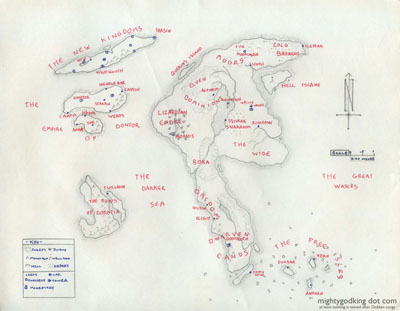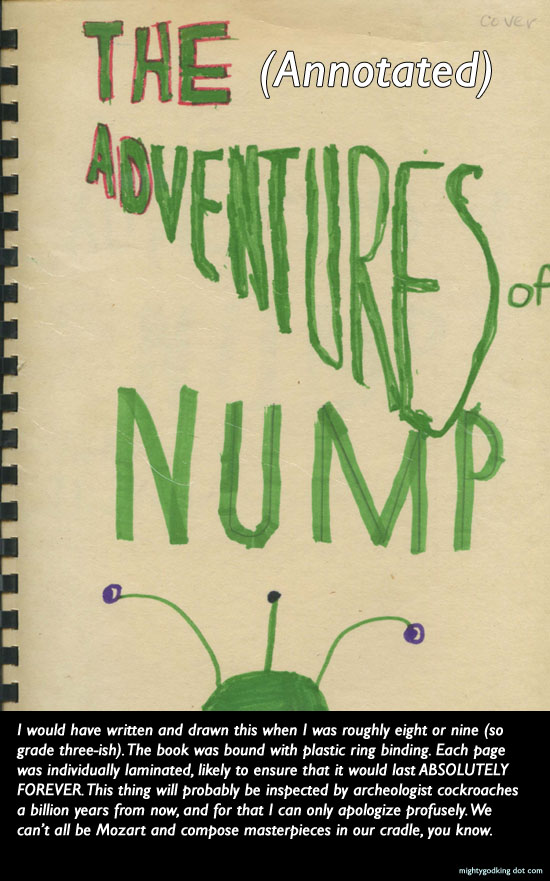Tonight, a short streetcar ride from my home in downtown Toronto, my boyfriend and I are going to see a live WWE event. I’ve been to a total of two in the past – the first time was in Peterborough, Ontario, sometime in 1989 or 1990, and the second an NXT event in Brooklyn last summer.
The tour stop in Peterborough wasn’t exactly a star-studded event – the headliner that evening was the Honky Tonk Man, and I’m sure I cared more about the possibility of getting a chocolate bar at the concession stand than any actual wrestling. It was very dark and loud inside, and from where we were seated we couldn’t see much. I remember my brother Alex’s disappointment that there weren’t more stars on the card. However it didn’t affect his love of wrestling in the slightest. In the decade and a half that followed, it became the one thing we could talk about. I’m grateful for that.
I don’t quite recall when my brother’s love of professional wrestling began, but by age 6 or so, it was already there, as strong as his love of hockey. He had the figurines, and a replica championship belt. We watched Hulk Hogan’s Rock N’ Wrestling on Saturday afternoons. He used the couch cushions to practice body slams and pile drivers; I allowed him to practice half-nelsons and figure-four leg-locks on me. And, sometimes, on very special occasions, we would go to bed early on Saturday night to be woken up to come downstairs and watch Saturday Night’s Main Event.
We were farm kids, two hours from Toronto; it was a forty-minute drive to the nearest mall. There wasn’t any internet yet, so that meant television, books and magazines were our connection to popular culture and the world at large. In the early 2000s my mom got satellite TV, which meant that pay-per-views could be ordered by phone. This was a huge deal for us and for Alex’ connection to wrestling – before this we had never even had cable. But now Alex could watch RAW, Nitro, Smackdown, and even ECW shows.
By this time I was living in Toronto, studying opera at university. At this point, Alex and I didn’t have very much in common and as a result we didn’t really get along. From the way he spoke to me then, he felt I was a soft and undisciplined dilettante, living it up the big city, spending my student loans on (pfffft) singing. I was in my high-minded early 20s and thought “at least I’m pursuing something specific!” Alex never really found that focus for anything other than wrestling. After high school, he did a year in an agricultural program near Ottawa, and then attended a wrestling school in Cambridge – but he wasn’t built for wrestling. All the guys at the school were big; Alex had less than 10% body fat. He was lean and strong – very strong – from a lifetime of physical farm labour, but it didn’t translate to success in the ring.
I wish it had. I wish he had found a way to make a living in the world he loved so much. I wish he knew that just because he wasn’t cut out to wrestle didn’t mean he wasn’t worthy. He was. But he was in so much pain.
By the mid 2000s, we would end up arguing just about every time I came home to the farm for a weekend or holiday. He was still living at home, working on the farm. The only time we didn’t fight (if we were in the same room) was when wrestling was on. Because I had become a professional performer, I still enjoyed it. (There are more similarities between the opera world and the wrestling world than you might think – although most opera crowds, as a rule, don’t chant at the singers.) I would ask him questions about the wrestlers, about the storylines. We could talk about it and be friendly again, like when we were kids. He’d been reading the wrestling magazines for years and years, but now was reading wrestlers’ autobiographies too, like Mick Foley’s, which I picked up and devoured in a weekend. I hoped we could connect on other levels. There was so much about him I didn’t know, that I hadn’t gotten the chance to learn.
We never got the chance. In April 2007 my brother Alex took his own life. He was twenty-five. We buried him with his championship belt. He was sick and in pain, and chose to end that pain in the only way he thought he could. He left his parents, eight siblings, five nieces and a nephew, and many more he didn’t get to meet. They would have loved him; he would have loved them. He was great with kids: he taught our five year old niece to sing the lyrics from Tom Petty’s “You Don’t Know How It Feels,” and specifically the part where Petty sings “let’s roll another joint,” which made all of us laugh – even Mom, although she pretended to be shocked.
For a few years after his death I felt guilty that we never had the chance to get along better. Did I have the right to grieve when we were always at odds? I felt like he hadn’t liked me since we were kids. He was my brother and I loved him, but I certainly didn’t always like him. We could really be assholes to each other, to be quite honest.
Then, two years ago, I met someone from Twitter for what was technically a blind date. We had a drink at the Imperial Pub near Dundas Square; when I found out that he was a wrestling fan, I ran with it. I name-dropped every 80s wrestler I could, telling him how I remembered Dino Bravo’s baby blue trunks, professing my appreciation for Randy Savage’s use of classical music. To put it mildly, we hit it off great. (He says me name-dropping wrestlers didn’t have that much to do with it, but I think it had to help at least a little.) Eventually I told him about my brother, about how much of a wrestling fan he was, too, and that I hadn’t really paid attention to it since his passing. So he did his best to catch me up. He pulled up a clip of someone named CM Punk cutting a promo that was now wrestling history. And then told me that this guy – his favorite wrestler – was probably not going to come back to the WWE. I missed CM Punk entirely!
In the two years we’ve been dating, I’ve watched more wrestling than in the past fifteen years previous. We went the the NXT event in Brooklyn, which was FANTASTIC. (We bought matching Bayley “I’m A Hugger” T-shirts.) We catch the live broadcasts of PPVs in the theatre or at home on the WWE Network. I still ask a LOT of questions, which Chris seems happy to answer.
This week, with the WWE event that’s happening in Toronto, I’ve been wistful. I’ve been thinking about my brother and how, though they are from vastly different worlds, their shared love of wrestling might have given them a bond. Each time I watch it feel like I’m honouring Alex’s memory in a small way. Tonight when I see Triple H – who was always the wrestler Alex and I could agree we really liked – I will be cheering through tears, wishing we’d had the chance to enjoy it together more – and I’ll be thankful for the man who’s brought it back into my life.



